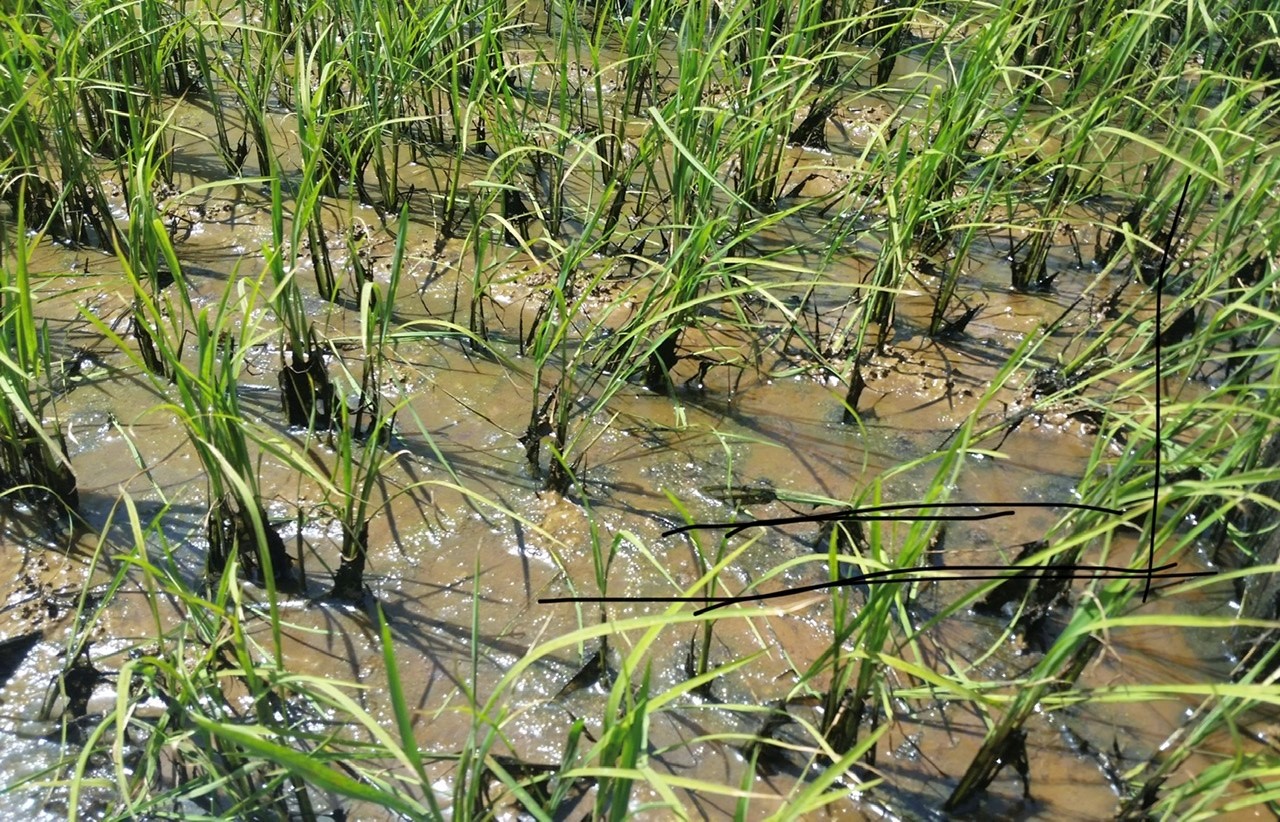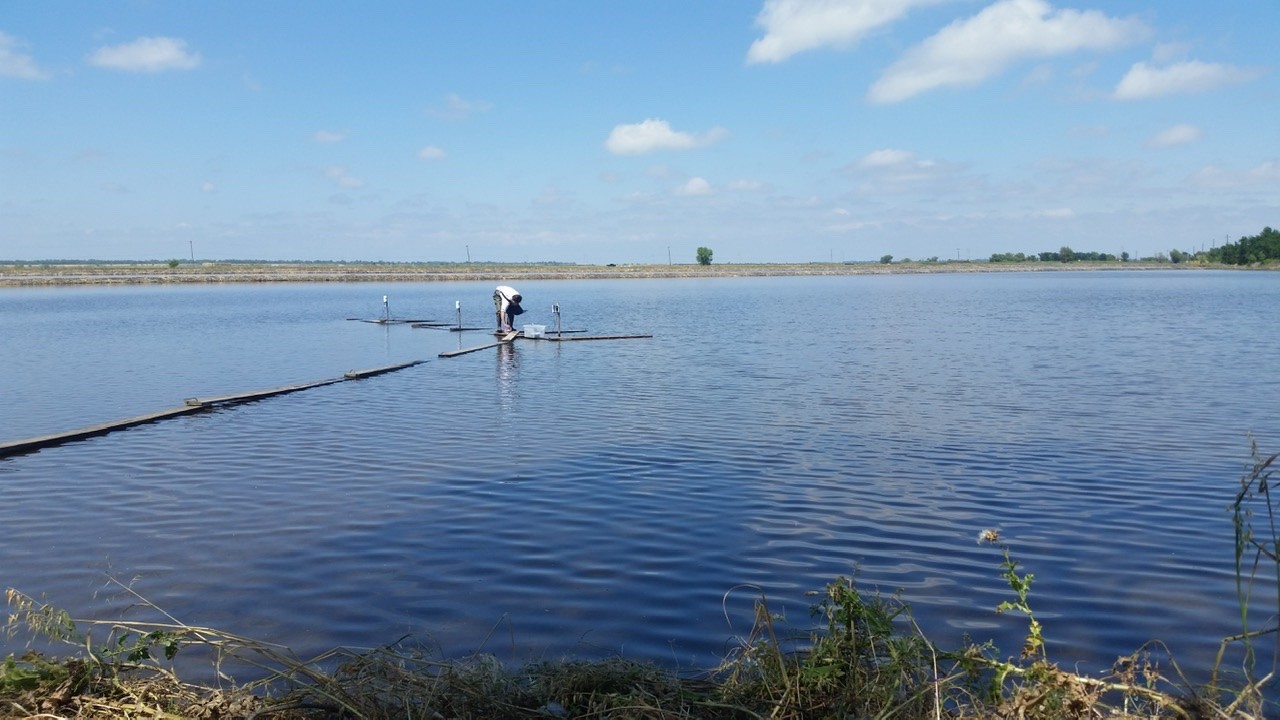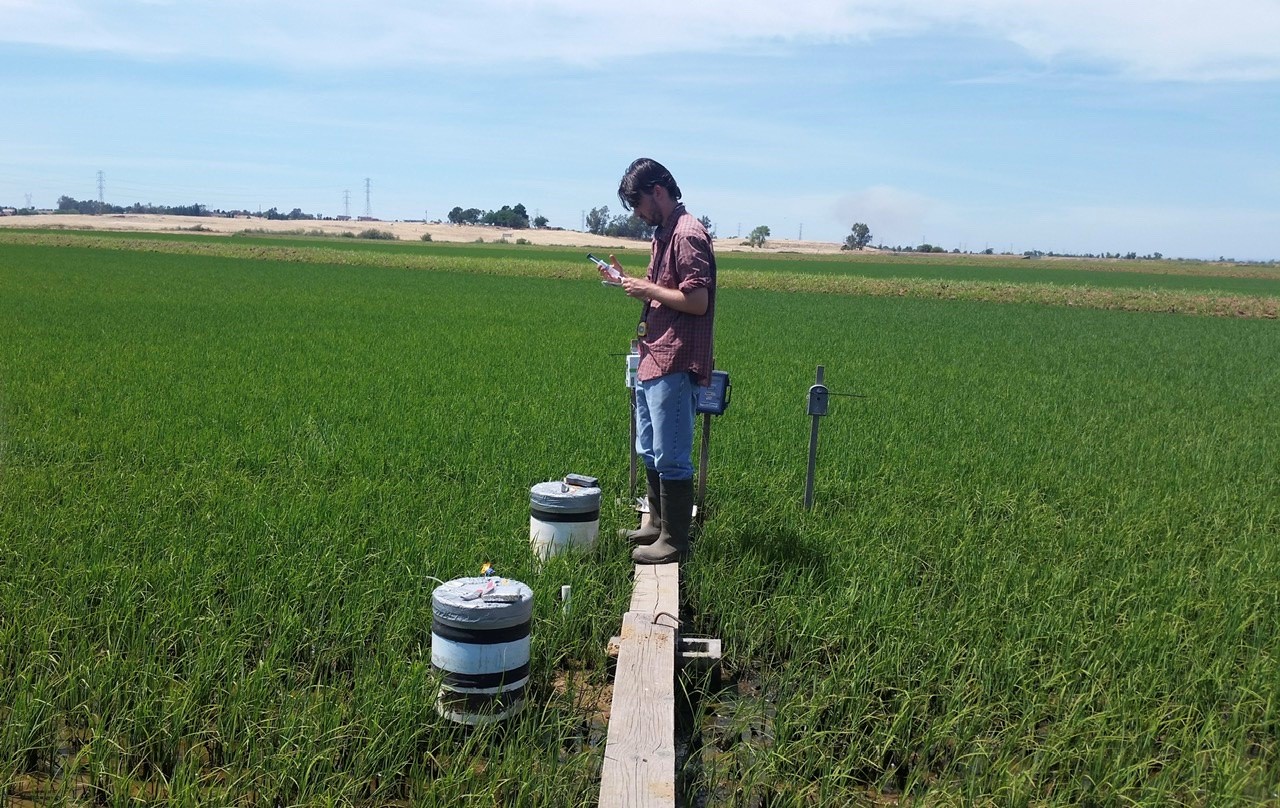Energy Services
Midseason Drainage of Flooded Rice Fields in the Sacramento Valley, CA
Globally, flooded rice cultivation is responsible for approximately 22% of all agriculturally related methane (CH4) emissions and 11% of anthropogenic CH4 emissions. Production of CH4 in rice systems is primarily the result of fermentation of soil organic matter under flooded anaerobic conditions. Our research has shown that a single mid-season drainage event may be able to reduce greenhouse gas emissions from flooded California rice fields by two-thirds with little impact on yield. If this simple intervention is able to be implemented widely with consistent results it has tremendous potential to reduce emissions globally.

In this project, we will further study the ability to reduce the seasonal environmental impact associated with GHG emissions, particularly CH4, from flooded rice cultivation in California through mid-season drainage. Based on our results, we aim to promote adoption of midseason drainage as a viable GHG mitigation practice with limited potential for overall yield risk for California rice farmers.
Phase 1 will include on-farm field experiments conducted at four rice growers' fields throughout the Sacramento Valley and will include intensive GHG sampling, measurement of soil moisture parameters, soil sampling, and measurement of rice grain yield. Soil moisture data will be collected during the drainage periods to assess the soil-drying severity of the drains. Yield data will be collected at the time of harvest to assess potential differences between drained and continuously flooded fields. Additionally, cumulative seasonal CH4 and nitrous oxide (N2O) emissions as well as global warming potential (GWP) will be calculated from drained and continuously flooded fields. The goal of this analysis will be to prepare grower education materials to promote midseason drainage as a sustainable water management practice that will lead to decreased GHG emissions on a large scale.

Phase 2 will involve extension-style outreach activities to California rice growers, including oral presentations of the results from Phase 1 at various rice grower meetings and field days. During Phase 2, we will develop a water management/agricultural GHG extension education program which will include educational guides for growers, such as pamphlets, online videos, on-site assessments, and educational sessions on the benefits of midseason drainage for GHG mitigation. The primary goals of the educational materials will be to provide growers with information on CH4 emissions reductions, data and strategies to ensure maintaining grain yield relative to continuously flooded systems, and to help growers adequately address drainage issues. By developing working relationships with rice farmers, we anticipate eventual wide-spread adoption of midseason drainage practices across the Sacramento Valley in California. Additionally, we aim to develop a process for generating usable offset credits from the GHG reductions achieved as a result of midseason drainage, including a method for estimating and verifying emissions reductions and an ongoing program for crediting generation between the UC and participating farmers.

Project Updates:
In summer 2020, Phase 1 was initiated at four rice growers' locations throughout the Sacramento Valley. Reductions in cumulative seasonal CH4 emissions in the fields with midseason drainage ranged between 35-77% compared to continuously flooded control fields. Emissions of N2O from fields were minimal, and therefore percent reductions in GWP were nearly identical to that of cumulative CH4 emissions. Additionally, no significant reductions in grain yield were observed in drained fields compared to continuously flooded fields. Currently, Phase 2 is underway, and we are in the process of ongoing discussions with CA rice farmers and members of the California Rice Commission to determine level of interest and participation from rice growers for larger-scale adoption of midseason drainage as well as feasible means of offset crediting and compensation.
Project Lead/Director:
Henry Perry
PhD student, UC Davis
Graduate Group in Horticulture & Agronomy
hoperry@ucdavis.edu
⇐ Return to UC-Initiated Offsets page
